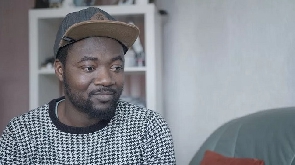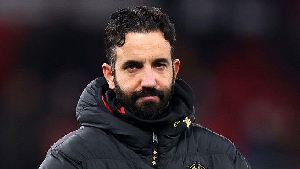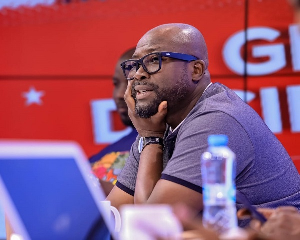But for the curiosity of Ghanaian-BBC journalist Thomas Naadi, who found a driver’s license that was part of a cache of personal documents belonging to various people gleaned over time from a site where small boats used by migrants to cross the Mediterranean, Richard Opoku may have never retrieved his lost document.
And, had it not been for that journalistic urge to get to the bottom of something most people will glide over, none may have ever read about the struggles this young Ghanaian, now resident in Germany, went through in his quest for a better life.
But all of it started for Richard a central part of Ghana, where he once dug big and deep holes in the ground in an attempt to find the most precious of the country’s natural minerals, gold.
Dangerous and not always reliable in terms of remuneration, he took an early retirement from the illegal mining activity to sojourn in search of a greener pasture.
But it was a tough decision that nearly cost him his life.
And that story, he told to Thomas Naadi when, after many months of searching, he finally found the man who lost his driver’s license.
The following are the accounts of the BBC journalist in his report titled, “Traces left behind: A migrant story:”
Frank Apronti of the Document Fraud Expertise Centre of the Ghana Immigration Service manages to find a phone number for a relative of the owner of the driving licence.
It is his sister who then connects me to his brother who tells me that he is still alive and living in Germany.
When I call Mr Opoku, he is shocked when I tell him that I had found his driver's licence in Lampedusa.
It turns out that he had lost it in 2011 and never expected it to turn up again. In fact, he does not believe that I have it until I share a picture of it.
I finally travel to Germany to meet him.

Richard Opoku was reunited with his driver's licence 11 years after losing it on a boat
On a frosty winter morning, he welcomes me into his small one-bedroom apartment, on the outskirts of the northern German city of Bremen.
He now works there as a forklift truck driver.
When he was in Ghana he worked for a time as an illegal gold miner, or galamsey as they are known, to raise money for his journey. Every day these men risk their lives in insecure tunnels that sometimes cave in.
In 2009, when he decided to set off for Europe, he says he knew the risks that the journey would entail, but felt it was no more dangerous than the work he was doing in Ghana.
His travels saw him zig-zag across the region as he tried to make money to move on.
He first went to Cotonou in nearby Benin, and then to Lagos in neighbouring Nigeria, where he earned money by driving a motor scooter carrying passengers around the huge city.
From there he returned to Cotonou and proceeded north to neighbouring Niger and worked in a local restaurant for another two months.
But the journey in a vehicle across the desert from Niger to Libya was the biggest test yet. He used the money he got from working in Nigeria and Niger to pay the fare.
He was amazed at how the driver knew where to go in a place where there were no roads.
"At times you will meet a group, the whole 35 people with the driver… they're all dead."
Perhaps they died of thirst - he is not sure.
"Water is something like gold or diamonds on the journey. Maybe the whole day you only drink once or twice - just a small sip."
At the Chadian border, the vehicle was stopped by criminals and the passengers stripped of their clothes and money.
Mr Opoku managed to prevent his cash from being taken by secreting it on his body.
But his troubles were not over once he reached Libya. He was kidnapped for ransom and beaten to a pulp because he was unable to reach a relative to pay. Finally, a woman who was looking for a domestic worker paid for his release.
Then in 2011, two years after he had left Ghana and in the midst of the uprising against Libyan leader Muammar Gaddafi, Mr Opoku boarded a boat in Tripoli to make the crossing to Lampedusa.
But in the middle of the Mediterranean Sea, the boat's engine cut out. Mr Opoku and and his fellow passengers had to rely on the mercy of the wind until they were rescued by the Italian coast guard.
He lost his licence when they docked on the shores of Lampedusa.
They were initially put in a camp and then transferred to a migrant centre in Sicily. His plan was to head to Germany, as he had heard from other Ghanaians that it was a good place to be.
While in Italy, however, he applied for asylum.
His application was initially refused, but says that he managed to get permission to be in Europe as the UN recommended to Italy that anyone who fled Libya during the 2011 turmoil should get permission to stay for a year. I have been unable to verify this claim.
"The journey was very rough. It was hell," he says.
"But there's no hope at home so you will just bear the pains and continue."
Mr Opoku had imagined an easy life in Europe, but says things did not turn out that way.
"When I was in Africa, I thought in Europe, you will get money easily but it's not like that. You have to work hard.
"But at home, there was no plan for me to survive, so I will say that I'm grateful to be here."
AE/OGB
General News of Monday, 10 April 2023
Source: www.ghanaweb.com













